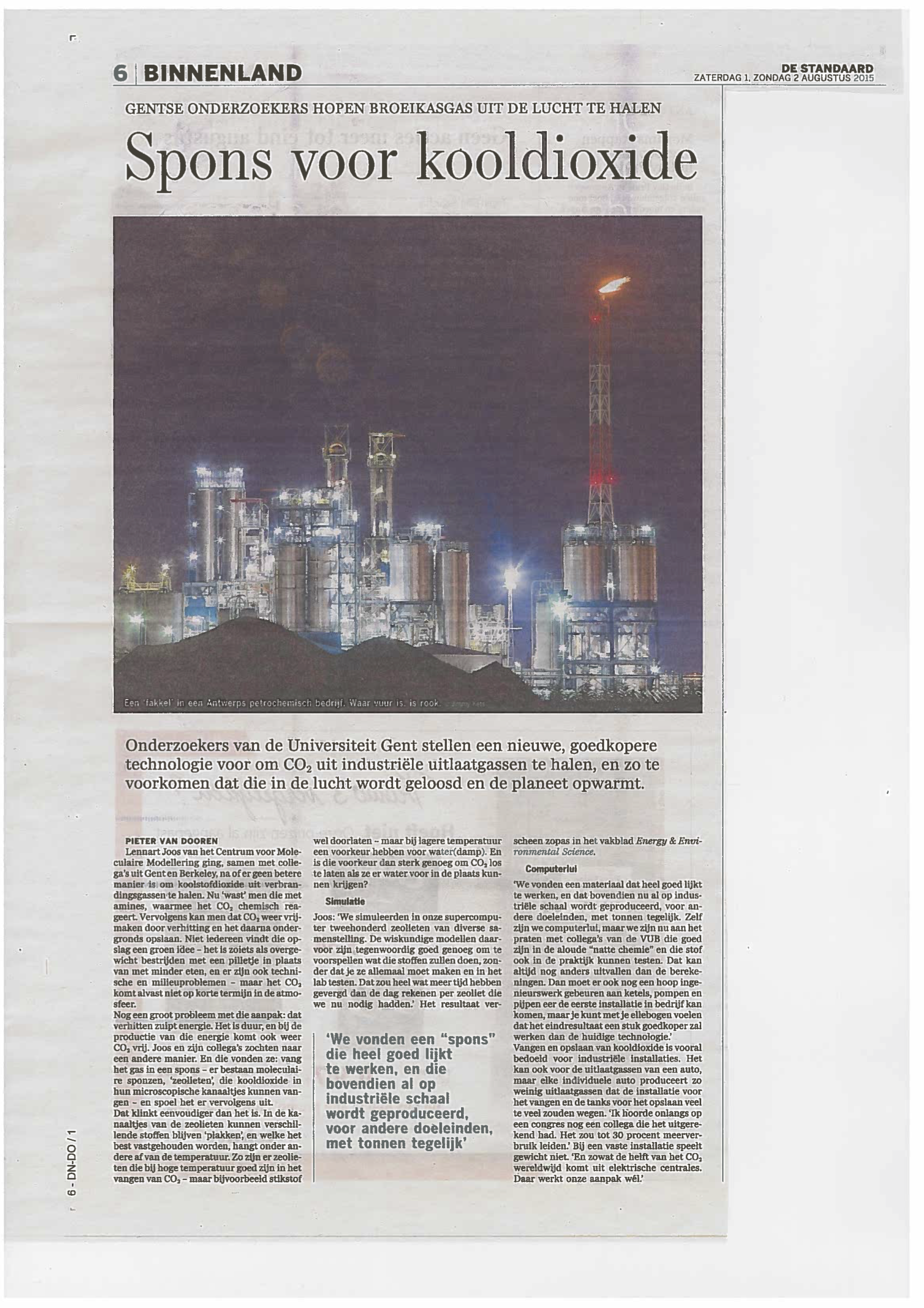Carbon Capture and Sequestration (CCS)
CCS is one of the most promising technologies to reduce CO2 emissions in the short term. I'm investigating the competitive adsorption of H2O and CO2 in nanoporous materials using molecular simulations. For this project, I was on a year-long research stay in the group of Prof. Berend Smit as a visiting Fulbright scholar at UC Berkeley.
The results were reported in several Flemish newspapers (the links to several websites can be found here) and an interview appeared on an economical television channel.

NOx removal
Nitrogen oxides, NOx, are formed in all combustion engines and are hazardous for men and environment. A new process was investigated that can 'capture' the NOx from the exhaust gases using heteropoly acids. Quantum chemical free-energy calculations indicated that the adsorption process is entropy-driven, as more gas molecules are released than adsorbed by substitution of H5O2+ with NO+ species.
Rational Zeolite Design
Zeolites are widely used in the petrochemical industry, as both catalysts and adsorbents (for CO2 for instance). Although the search for new zeolites has traditionally been based on trial and error, more rational methods are now available. Theoretical simulations provide a fundamental understanding of the chemical reactions that are at play in zeolite synthesis and can help to uncover the next generation materials. For this, a strong collaboration with Prof. Kirschhock and Prof. Martens from the Centre for Surface Chemistry and Catalysis (COK-KULeuven) is maintained.
Fischer-Tropsch synthesis
Fischer-Tropsch synthesis is an attractive process to convert alternative carbon sources -such as biomass, natural gas or coal- to fuels and chemicals. The deactivation of cobalt catalysts by carbon deposition was the topic my master thesis. This work has been completed in the beginning of my PhD in collaboration with Prof. Rutger van Santen at TU/Eindhoven.
